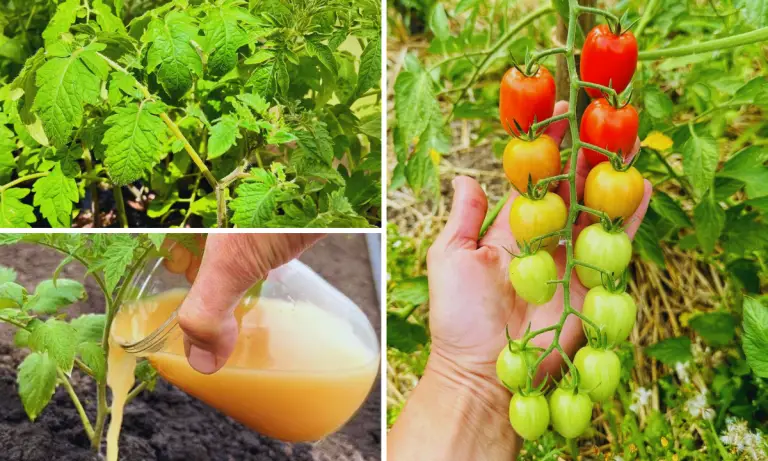9 Uses for Eggshells in the Garden
Eggshells are not just waste; they’re a valuable resource for any gardener. These fragile casings, often tossed away without a second thought, can serve numerous purposes in your garden, from enriching the soil to deterring pests.
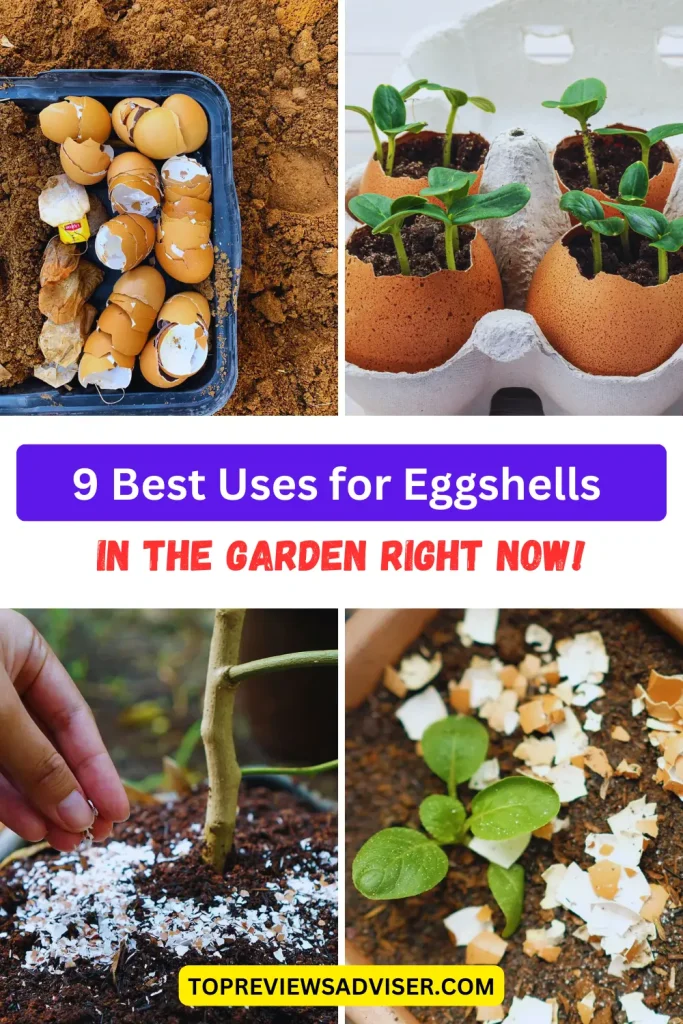
Let’s explore eleven creative ways to utilize eggshells and enhance your gardening experience.
What’s Good About Eggshells?

Eggshells are not just a waste product; they are packed with valuable nutrients like calcium carbonate, protein, magnesium, fluoride, selenium, and strontium. These minerals offer numerous benefits for both humans and plants, making eggshells a valuable resource in gardening.
Here are nine ways you can harness the power of eggshells to improve soil and plant health in your garden.
1. Nutrient-Rich Fertilizer
Crushed Eggshells as Calcium Boosters
Eggshells are primarily composed of calcium carbonate, a vital nutrient for plant growth. By crushing eggshells into small pieces and incorporating them into your soil, you provide a slow-release calcium source, preventing conditions like blossom end rot in tomatoes and peppers.
Ground Eggshells for Potassium and Magnesium
Apart from calcium, eggshells also contain potassium and magnesium, essential for overall plant health. Grinding eggshells into a fine powder and mixing it into the soil can supplement these nutrients, promoting stronger root development and robust foliage.
2. Pest Deterrent
Barrier Against Slugs and Snails
The sharp edges of crushed eggshells act as a natural deterrent for slugs and snails, preventing them from reaching vulnerable plants. Scatter crushed eggshells around your garden beds to create a barrier that these pests find difficult to cross.
Repel Deer and Other Animals
The strong smell of eggs can deter deer and other animals from foraging in your garden. Place eggshells around the perimeter of your garden or hang them in mesh bags to ward off unwanted visitors without harming them.
3. Seed Starters
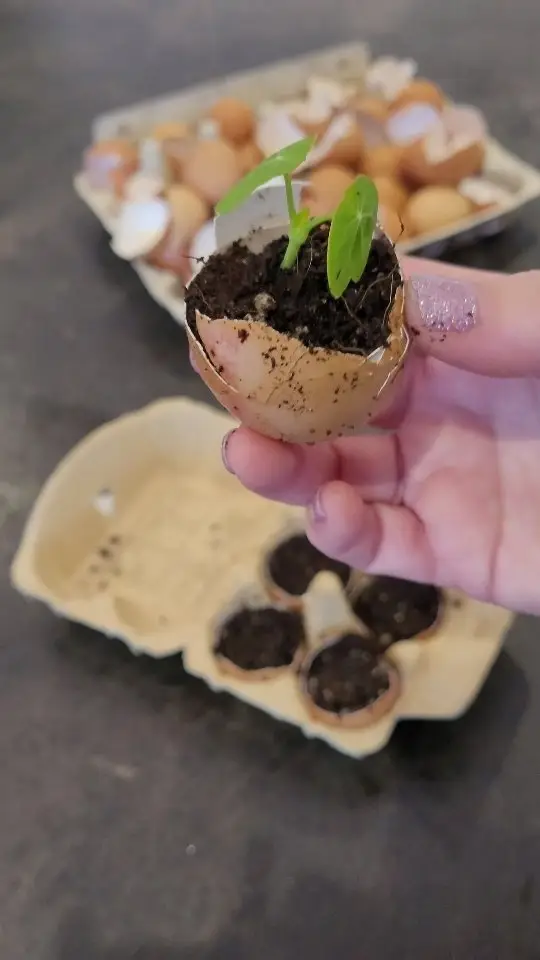
Biodegradable Pots
Eggshells make excellent biodegradable seed starters. Fill clean, halved eggshells with potting soil and sow your seeds directly into them. Once the seedlings outgrow the shells, you can transplant them into the ground, shells and all, reducing transplant shock.
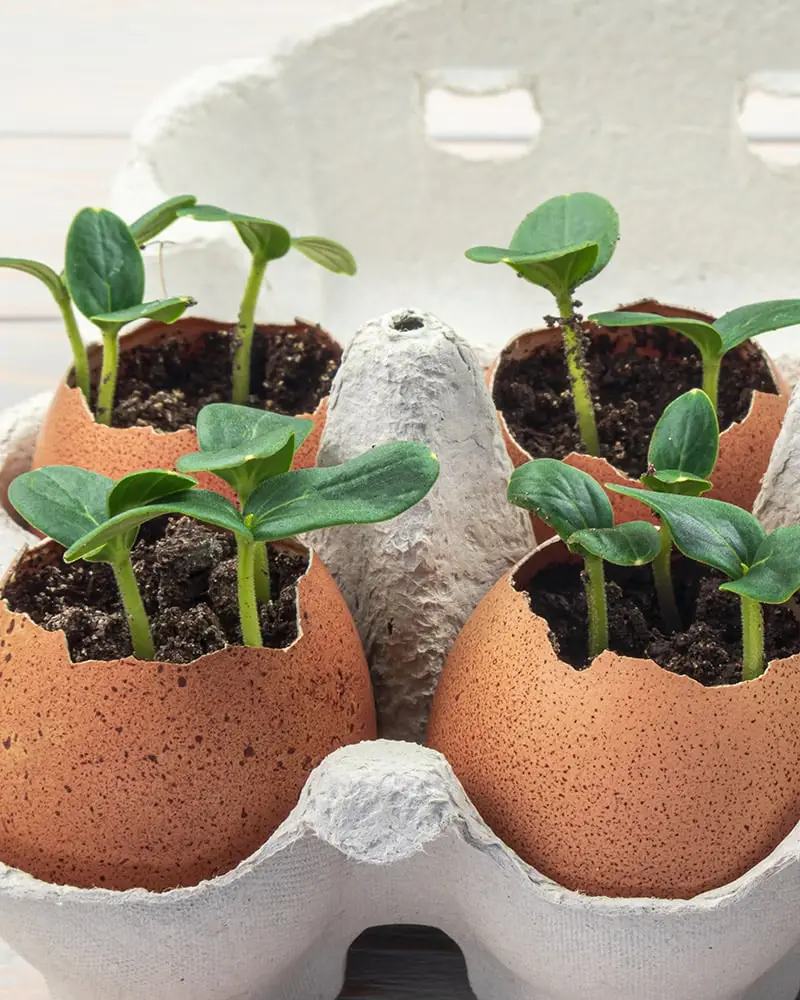
Protect Seedlings from Cutworms
Placing crushed eggshells around the base of young seedlings can deter cutworms, which feed on tender stems at ground level. The abrasive texture of the eggshells acts as a barrier, protecting your seedlings from these common pests.
4. Soil Amendment
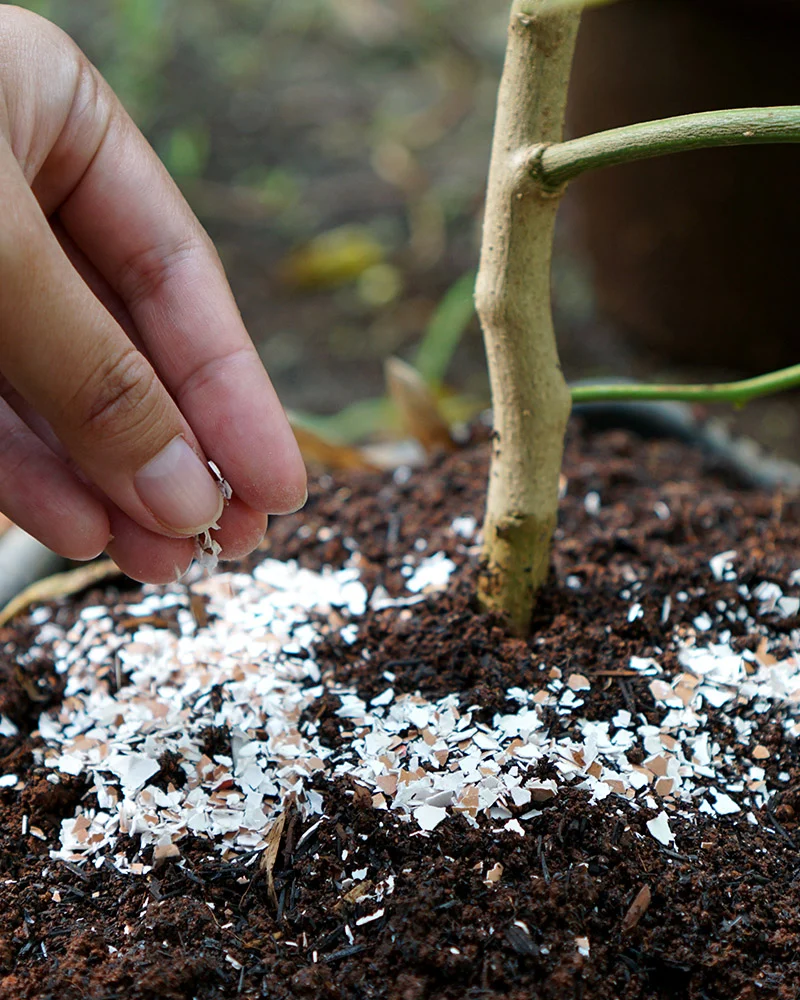
Improve Drainage
Incorporating crushed eggshells into heavy clay soils can improve drainage by creating air pockets and enhancing soil structure. This allows water to penetrate more effectively and prevents waterlogging, which can suffocate plant roots.
Balance Soil pH
Eggshells have a neutral pH, making them ideal for balancing acidic soils. Incorporating crushed eggshells can gradually raise the pH level, creating a more hospitable environment for a wider range of plants.
5. Natural Mulch
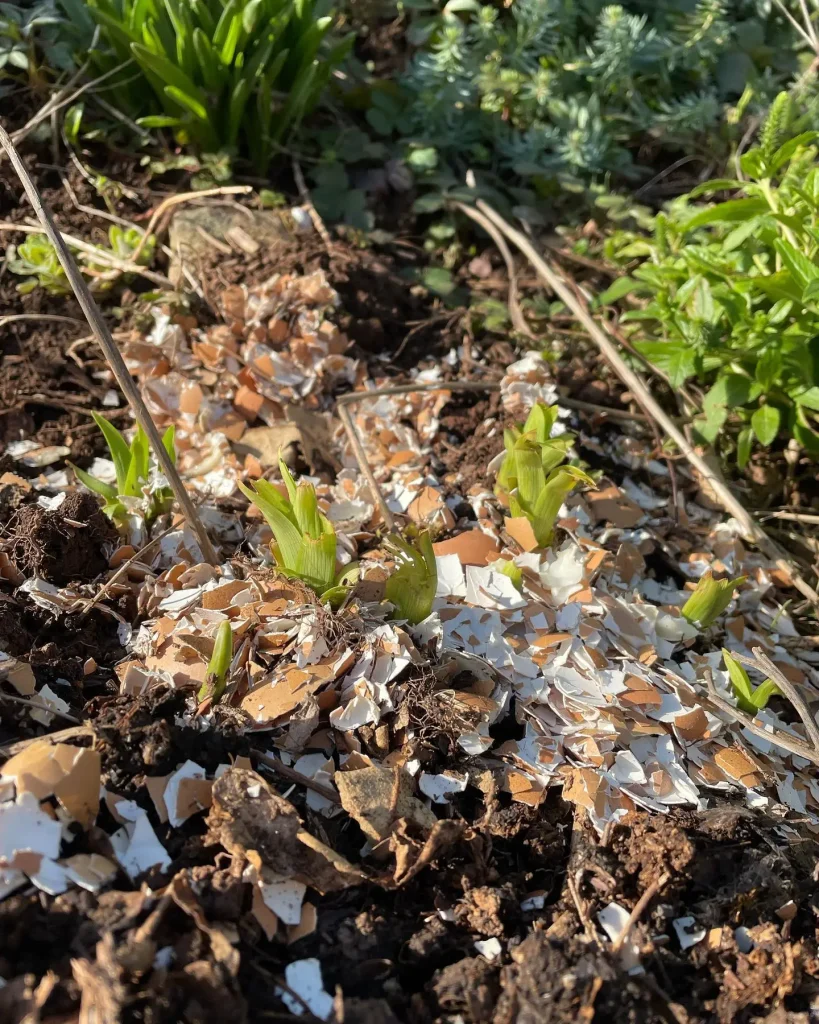
Insulate Soil
Layering crushed eggshells on the soil surface acts as a natural insulator, regulating soil temperature and protecting delicate roots from extreme heat or cold. This is especially beneficial for tender plants during fluctuating weather conditions.
Suppress Weeds
The abrasive texture of eggshells can deter weed growth by creating an inhospitable surface for weed seeds to germinate. Spread crushed eggshells around garden beds to smother weeds and reduce the need for chemical herbicides.
6. Compost Enhancer
Speed Up Decomposition
Adding crushed eggshells to your compost pile provides valuable calcium to the microbial community, speeding up the decomposition process. The calcium also helps neutralize acidic compounds, maintaining a healthy pH balance in your compost.
Enrich Compost
Eggshells enrich compost with essential nutrients, including calcium, potassium, and magnesium, which are gradually released as the shells break down. Incorporating eggshells into your compost helps create nutrient-rich humus for healthier plants.
7. Bird Feed Supplement
Provide Calcium for Nesting Birds
Crushed eggshells offer nesting birds a valuable source of calcium, essential for eggshell formation and chick development. Scatter crushed eggshells near bird feeders to supplement their diet and support breeding success.
Attract Birds for Pest Control
By providing calcium-rich eggshells, you can attract insectivorous birds to your garden, which help control pest populations naturally. Encouraging a diverse bird population can lead to a more balanced ecosystem and reduce the need for chemical pesticides.
8. Fertilizer Tea
Calcium-Infused Watering Solution
Soaking crushed eggshells in water creates a calcium-rich fertilizer tea that can be used to water plants. This homemade solution provides a gentle nutrient boost, especially beneficial for calcium-loving plants like tomatoes and peppers.
Boost Plant Health
Regularly watering plants with eggshell tea strengthens cell walls, improving resistance to diseases and environmental stressors. It’s a cost-effective and eco-friendly way to promote overall plant health and vitality.
9. Decorative Element
Creative Garden Art
Eggshells can be transformed into decorative garden ornaments, adding a whimsical touch to your outdoor space. Painted eggshell halves can be used as plant markers or incorporated into mosaic designs for a unique artistic flair.
Adds Texture to Pots
Crushed eggshells can be mixed into paint or concrete to create textured finishes for garden pots and planters. This not only adds visual interest but also provides additional drainage and aeration for potted plants.
Preparing Eggshells for Use
Preparing eggshells for use in the garden is a straightforward process, but attention to detail ensures optimal results. Here’s a detailed guide to preparing eggshells like an expert:
- Collection and Cleaning: Begin by collecting eggshells after using eggs in your kitchen. It’s essential to thoroughly clean them to remove any remaining egg whites or yolks, as these can attract pests and cause unpleasant odors as the shells dry. Rinse the eggshells under cold water, gently scrubbing if necessary, until all traces of egg residue are gone.
- Drying: Once cleaned, allow the eggshells to dry completely. Proper drying is crucial to prevent mold or bacteria growth during storage. Spread the washed eggshells out in a single layer on a clean towel or drying rack. Place them in a well-ventilated area away from direct sunlight to air dry naturally. Depending on humidity levels, this process may take a day or two.
- Crushing: Once dry, it’s time to crush the eggshells into smaller pieces. This step enhances their effectiveness in the garden by increasing surface area for quicker decomposition. There are several methods for crushing eggshells:
- Manual Crushing: Use a mortar and pestle to grind the eggshells into a fine powder. This method allows for precise control over the size of the crushed pieces.
- Mechanical Crushing: If processing a large quantity of eggshells, consider using a food processor or blender. Pulse the eggshells until they reach the desired consistency, being careful not to over-process.
- Hand Crushing: For smaller batches, place the dried eggshells in a resealable plastic bag and gently crush them with a rolling pin or hammer. This method is quick and efficient but may produce larger pieces compared to manual grinding.
- Storage: Proper storage ensures that prepared eggshells remain dry and free from contaminants until ready for use in the garden. Transfer the crushed eggshells to a clean, airtight container such as a glass jar or plastic resealable bag. Label the container with the contents and date of preparation for easy identification.
By following these detailed steps, you can prepare eggshells effectively for use in the garden, maximizing their benefits as a natural soil amendment, fertilizer, or pest deterrent.
Conclusion
In conclusion, eggshells are a versatile and valuable resource for gardeners, offering myriad benefits for soil health, plant growth, and pest management. From nutrient-rich fertilizer to natural pest deterrents, these humble shells can make a significant difference in your garden’s success.




